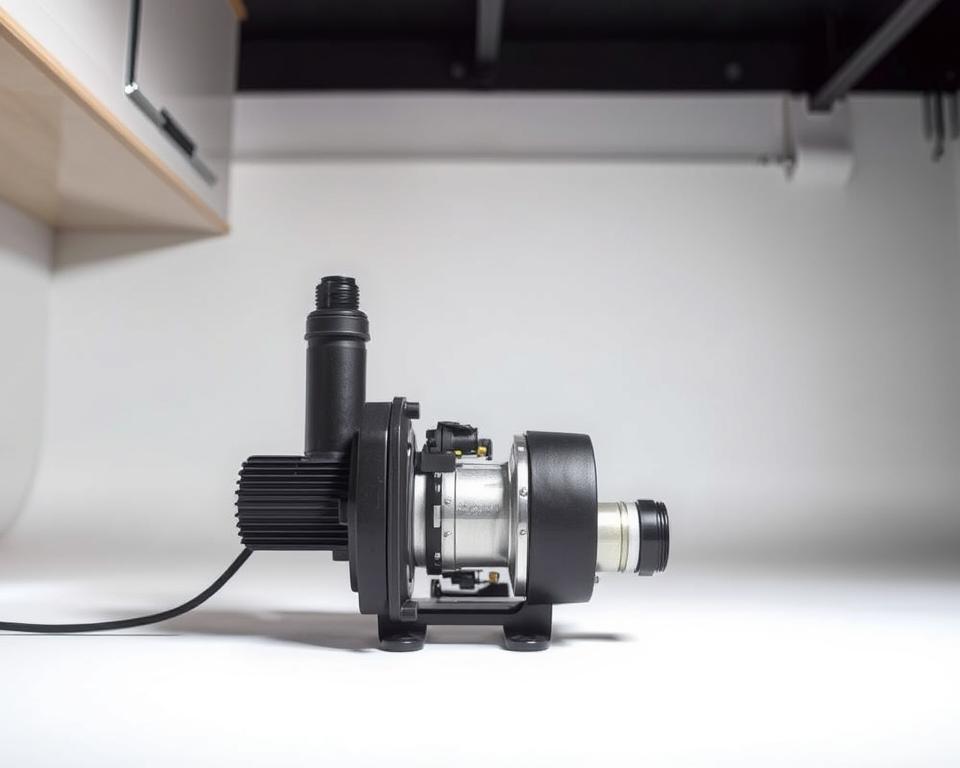Your Guide to RV Septic Tank Service & Care
Curious about what takes place to your RV’s Septic tank as you’re rolling down the highway? It’s not just dodging bad smells. Maintaining your RV Septic tank properly serviced guarantees problem-free journeys. A regularly serviced system avoids messy mishaps and costly expenses. However, many ignore this crucial care. In this guide, we unpack the need for regular RV waste water pump. We’ll spotlight why maintenance matters and share tips for servicing your recreational vehicle’s Septic tank. Prepare for trouble-free journeys!
Core Insights
- Regular RV Septic tank service is essential for peak performance.
- Understanding your RV Septic system enables you to head off costly repairs.
- Preventive maintenance prevents unpleasant odors and clogs.
- Establish a pumping schedule based on your usage.
- Practice best practices for dumping your holding tanks.
- Steer clear of common mistakes to extend the life of your Septic system.
- Recognize when to call for professional help for Septic services.
Understanding RV Septic Systems
An RV Septic system is key for any camper. It houses multiple holding tanks that handle waste properly. You’ll find three primary tanks in an RV: the fresh water, the gray, and the black tank. The fresh water tank provides clean water for drinking and cooking. Meanwhile, the gray tank holds wastewater from sinks and showers, ensuring cleanliness. The black tank, specifically for toilet waste, also has a vent to cut odors.
Preserving a healthy camper sewage system demands knowing how these parts interact. Routine checks of the tank levels are essential to stop overflow and guarantee everything runs properly. Getting to know the termination valves is key too. These valves are key in efficiently managing waste disposal. By familiarizing yourself with these components, you can keep your RV in great shape and relish your travels without unwanted hassles.
| Reservoir | Role | Typical Size |
|---|---|---|
| Fresh Water Tank | Supplies drinking and cooking water | 30-100 gallons |
| Gray Tank | Stores wastewater from sinks and showers | 30-60 gallons |
| Black Tank | Stores toilet waste | 30-50 gallons |
Benefits of Regular RV Septic Tank Service
Regular RV Septic tank service is central to keeping your system effective and long-lasting. Without adequate maintenance, you could face system failures, bad smells, and expensive repairs—issues that interrupt your adventures.
Overlooking the upkeep of your RV’s Septic system may cause it to back up. This not only impacts your RV’s function but also your comfort levels. A serviced and properly cared for system is essential for smooth trips, granting you a serene travel experience.

Ongoing maintenance lengthens your sewage system’s lifespan and preserves a clean living space. Monitoring your Septic tank allows you detect issues early. This proactiveness cuts costs and stress, granting you confidence during your journeys.
How Often to Pump Your RV Septic Tank
Identifying the ideal schedule for RV Septic tank maintenance depends on the vehicle’s usage. For those constantly on the road or staying in their RVs, it’s wise to drain the black tank every three to five days. This practice maintains cleanliness and avoids unexpected issues during voyages.
Weekend adventurers can generally wait until they return home to pump their Septic tank. Leaving waste in the tank too long, though, can cause build-up that impedes the tank’s function and smell control. It’s important to check the tank’s level closely, preparing for disposal once it hits around two-thirds full to keep everything running smoothly.
The capacity of your Septic system, along with how you use your RV, will determine when to pump. Understanding these aspects boosts your RV’s performance and cuts the dangers of poor waste management.
| Travel Style | Ideal Pumping Cadence | Signs for Immediate Pumping |
|---|---|---|
| Frequent Usage | Every 3-5 days | Reaches 66% capacity |
| Weekend Trips | After return home | Unpleasant odors or slow drainage |
| Extended Trips | Every 2-3 days | Sight glass shows full |
Smart Tips for Draining RV Holding Tanks
Properly managing a recreational vehicle’s holding tanks is crucial for a enjoyable camping experience. Start by draining the black tank first. This method allows the gray water to flow through and flush out the hose. Ensure the use of a high-quality sewer hose for a solid connection and to reduce spills. Once the tanks are emptied, completely flushing the black tank is important. Employing a built-in black tank flush or comparable alternatives can significantly reduce residue.
After the emptying process, it’s critical to close both valves securely. This action is necessary to sustain a fully operational Septic system. Additionally, RV owners must rely on dump stations properly and comply with local laws. Consistent cleaning practices for recreational vehicle Septic tanks are necessary. They protect the system’s optimal functionality and prevent future odors.
Preventing Odors and Clogs in Your RV
To tackle odors and stop clogs in your RV, being meticulous is key. The task starts with making sure enough water in the holding tanks. Adequate water aids in breaking down waste effectively, lowering bad smells.
Choosing suitable toilet paper is essential in this process. Opt for RV-safe toilet paper that breaks down quickly, preventing clogs. This minor adjustment significantly supports maintaining seamless waste flow.
Using enzyme-based treatments can further improve waste decomposition and odor control. These eco-friendly solutions assist keep your RV smelling fresh. It’s also crucial to regularly check vent pipes for obstructions to ensure good airflow and prevent odors from infiltrating your living area.
Common Mistakes to Avoid with RV Septic Maintenance
Maintaining your RV’s Septic system correctly is vital for its effectiveness and longevity. When non-biodegradable items like wipes or feminine products are flushed, they can cause significant blockages. These blockages can cause various problems that are difficult to resolve.
Not using enough water when flushing can also harm the system. It creates waste buildup, resulting in nasty scents and potential damage. Furthermore, a common mistake at full hook-up sites is leaving the black tank valve open. This causes waste to accumulate at the tank’s bottom.
Preventive measures involve regularly flushing and rinsing tanks after emptying them. Ignoring maintenance can snowball into significant issues requiring costly repairs. Being prepared and knowledgeable protects both your RV and your finances.
When to Seek Professional RV Septic Services
Understanding when to seek professional RV Septic services is critical for maintaining a healthy Septic system. Some indicators suggest the need for expert intervention. Should you spot slow-draining tanks or get persistent foul odors coming from your RV, it is smart to act promptly. These signs often mean underlying issues that require a thorough Septic tank service for resolution.
Visible leftover waste after emptying can also indicate problems within your Septic system. This situation may not clear with routine maintenance and may call for the use of specialized equipment. Professionals are prepared to address complex challenges using tools, such as high-pressure water jets, to ensure a comprehensive cleaning process.
Early professional assistance can make a major difference. Small problems can quickly turn into more severe complications without proper care. Investing in professional RV Septic services protects the integrity of your system and prolongs its lifespan.
| Warning Signs | Recommended Action |
|---|---|
| Slow draining tanks | Contact professional RV Septic services for assessment |
| Persistent foul odors | Schedule Septic tank service for diagnostics |
| Visible leftover waste | Seek immediate assistance from a professional |
| Frequent clogs | Consider expert cleaning solutions |
Long-Term Care for Your RV Septic System
Long-term care for RV Septic systems demands attention beyond basic pump-outs. Doing deep cleaning of tanks every few months stops buildup and lengthens system life. Checking dump valve seals regularly avoids leaks. Additionally, sanitizing the system preserves it clean and functioning well.
It’s important to monitor tank sensors to confirm they work correctly. Incorrect readings may lead to over-filling, affecting performance. Regular sensor checks and adjusting maintenance schedules can ward off this problem.
| Maintenance Task | Frequency | Outcome |
|---|---|---|
| Deep Cleaning Tanks | Every 3-6 months | Prevents buildup and clogs |
| Inspect Dump Valve Seals | Monthly | Prevents drips |
| Sanitize System | Every 6 months | Makes sure system remains clean |
| Monitor Tank Sensors | Monthly | Guards against overflow |
Proactive maintenance is central to your RV Septic system’s long-term health. It sets up pleasant and seamless travel experiences.
All In Sanitation: Your Partner in RV Septic Solutions
All In Sanitation stands out at crafting RV Septic services that meet each client’s unique needs. Whether it’s scheduled pump-outs or full tank cleaning, they get the essential role of a well-functioning Septic system in your RV’s performance.
Boasting extensive expertise in RV Septic systems, All In Sanitation offers top-tier guidance on maintenance and care. Their team is knowledgeable in the particular challenges RV owners encounter and offers effective solutions when troubles arise.
Choosing All In Sanitation lets RV enthusiasts dive in their journeys, handing over Septic concerns to a dependable ally. Their dedication to excellent service brings tranquility and enhances the pleasure of adventures on the open road.
Final Thoughts
Looking after your RV Septic tank is vital for hassle-free travels. It’s important to understand your system and stay on top of regular services. This guarantees you won’t face unexpected issues on your journey. These key steps include frequent pumping and using sound waste management practices.
Thorough long-term care maintains your system in prime form. By following the provided maintenance tips, you can enhance your travel experience. This method guards against expensive repairs later. Keep in mind, avoiding common errors and knowing when to obtain professional help are important.
Bottom line, being ahead of the curve in your RV Septic system’s maintenance secures a smooth adventure. It allows you to zero in on forming lasting memories. So, embrace these steps to heart and enjoy your road trips to their fullest.


